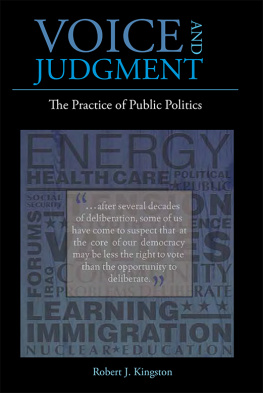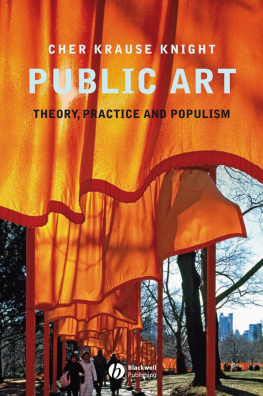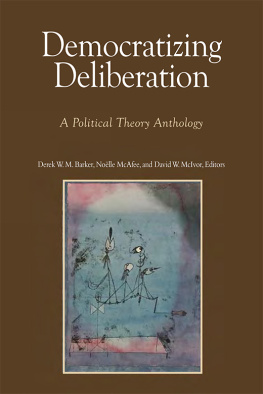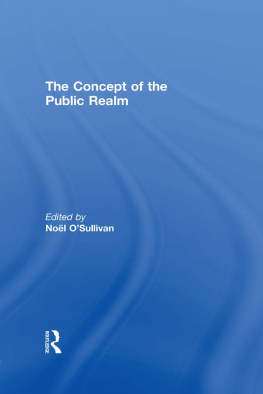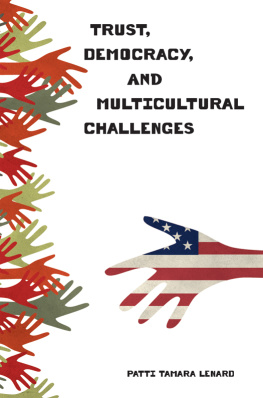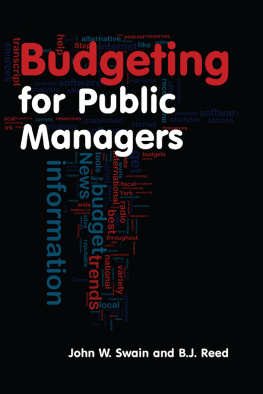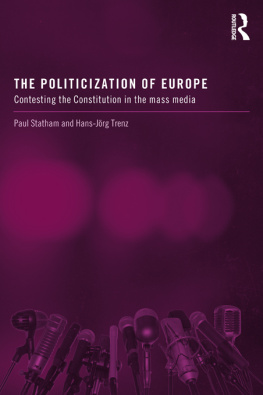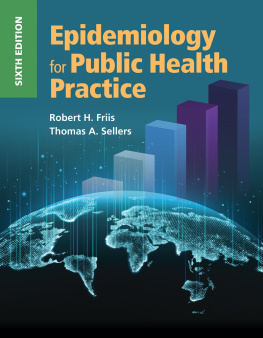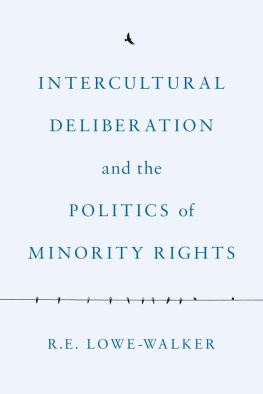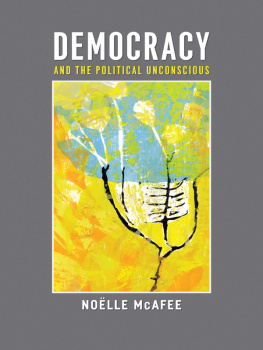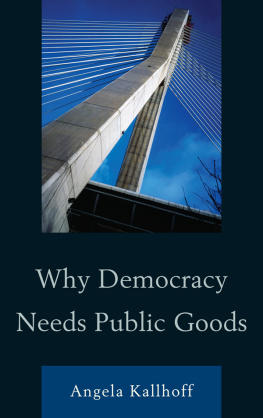2012 by the Charles F. Kettering Foundation
ALL RIGHTS RESERVED
Voice and Judgment: The Practice of Public Politics is published by the Kettering Foundation Press. The interpretations and conclusions contained in this book represent the views of the author. They do not necessarily reflect the views of the Charles F. Kettering Foundation, its directors, or its officers.
For information about permission to reproduce selections from this book, write to:
Permissions
Kettering Foundation Press
200 Commons Road
Dayton, Ohio 45459
This book is printed on acid-free paper.
First edition, 2012
Manufactured in the United States of America
ISBN: 978-0-923993-42-9
Library of Congress Control Number: 2012940499
after several decades of deliberation,
some of us have come to suspect that at the
core of our democracy may be less the right
to vote than the opportunity to deliberate.
______________________
_____________________________
______________________
______________________
_____________________________
______________________
AS READERS WHO ARE THEMSELVES familiar with public deliberation may know, the task of publicly talking through a national or community problem is not always easy. Nor has an answer (or an agreement) always been foundor universally shared! But what regularly does emerge, when a people deliberates, is a kind of shared understanding. At best, it is the sense of a shared public will. More important yet, such public deliberations, shot through with both reservations about and important recognition of the commonality of American experience, suggest something of what it may take to make democracy work as it should. And intriguingly, after several decades of deliberation, some of us have come to suspect that at the core of our democracy may be less the right to vote than the opportunity to deliberate.
This study of deliberation and its value is presented in six chapters, with each chapter growing from what preceded it. The first sets the stage or elaborates the purpose of what follows by describing the circumstances under which, and the intentions with which, two organizations in particularKettering Foundation in Dayton, Ohio, and Public Agenda in New York Cityset out to learn more clearly how the public might find and exert its will in shaping its communities and directing its nation (which sometimes seems, paradoxically, more oligarchy than democracy). also introduces the vehicle then designed for this exploration of public politics, the National Issues Forums.
Because it is sometimes easier to trace patterns of behaviorand in this case, of public thinkingby examining reactions to comparable exigencies over time, the second chapter focuses upon Americans slowly developing sense of their role in the world, as revealed in public deliberations on that topic over the past quarter of a century. While focusing on what is often loosely referred to as foreign policy, the chapter explores half a dozen recognizably different historical momentsfrom the fear of nuclear annihilation in the early 1980s, through the Vietnam era, to the ending of the Soviet Union and the emergence of the Middle East as this countrys more fearful horizoneach of which was encapsulated in a carefully framed discussion guide (variously also called by Kettering an issue book or an issue guide) and explored nationwide by deliberative public groups. Some of these group discussions were recorded on camera and their outcomes reviewed by politicians, professionals, and the press, thereby providing for 16 years the substance of a popular, nationwide PBS television program, A Public Voice, on which we will often draw.
Then follow two chapters on public thinking, primarily responding, in distinctively different patterns, to three critical and controversial domestic issues that have challenged and still do challenge citizens relations to each other and their degrees of trust in their elective government. Along with brief references to deliberations on several different issues, focuses its attention primarily on the issues of immigration and energy (which is to say, what is called the energy crisis, with its sometimes suggested implications for the economy, global warming, and international competition). Both issues remain continuing problems for the American public and its leadership, but the discussion of each reveals, in a compelling way, not merely the need for, but also the extraordinary promise of public deliberation as a means of moving tensely conflicting issues toward the kind of shared understanding from which viable public policy may growor to an increasingly shared understanding even of issues that, at points, have seemed to bare irreconcilable expectations! The fourth chapter, while similarly employing brief references to a range of public deliberations over the years, focuses upon the nations healthcare problems, which, after several earlier efforts, eventually became the core substance of forums in 2007 and 2008. The topic of health care in this chapter reveals with stark clarity the degree to which interests and convictions may contend irrevocablyperhaps unalterablywhen democracy itself is understood as a contest between predetermined opinions wherein practiced interests are at stake. At question in modern America (and in Europe too, of course) is still whether democracy is the only ultimately acceptable response to public challenges. Public deliberation, so far, has not come to a way out of all such problems that it sees, in part because while we may share some common values, and even a few common experiences, our individual interests often remain different if not inherently at odds.
The fifth chapter therefore brings our analysis of public thinking to bear on communities themselves, as they wrestle with issues that occur nationally yet reveal their implications most clearly to those who share their destinies in a common culture and place, where they experience the implications of political decisions with some immediacy. The public schoolits accomplishments, purpose, and destinyhas proved a most popular issue for discussion in communities around the nation over the past 30 years; more often than any other issue it has appealed to local groups eager to frame problems to which a communitys attention needs to be addressed. That it remains an issue both popular and elusive is reason in itself for inclusion; more important, however, we begin to see in this context why the school, like the topics of other provocative and contested local issues, remains more often talked about than agreeably improved. Understandings in a community need often to be changed before opinions can be!
The publics deliberative process remains, ultimately, in itself a process of learning; and perhaps, ultimately, government itself is a hard process to learn. Thus, finally, a closing chapter looks at Americans repeated deliberations about their own sense of their governments worth, or their reservations about it, and considers what continued deliberative judgments by the publicor at least the serious attempt to reach such judgmentsmight suggest for our future as a democracy. This is the central aim of the book: to show the role of public deliberation on the path toward the practice of democracy, and the challenge that faces a democratic people if it is truly bent upon self-government.

